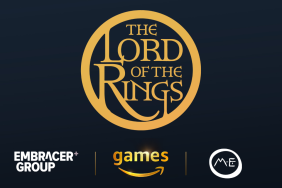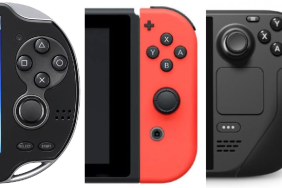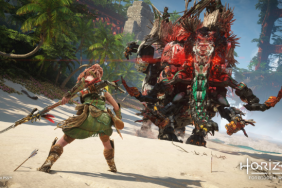With the recent rumblings of Amazon entering the home console market with an Android based device, the Daily Reaction crew of Seb and Dan discuss what this could mean for the Ouya, Google, the PS4, Xbox One and the Wii U.
Dan: There has been a great deal of buzz about the rumor that online retail giant Amazon will be entering the console space, which Game Informer revealed last week. They said:
According to those we spoke with who have knowledge of the in-development hardware, Amazon will be leveraging the titles already available on its platform. Each day, the company offers one productivity or game app for free and stocks a healthy library for its own devices, like the Kindle Fire. The console will also have its own, dedicated controller.
Looking at how Android based consoles have been performing since they originally launched, especially if you look at the Ouya, you would think that Amazon is making a grave mistake and is destined for failure. But, unlike Ouya or the Gamestick, the company developing this console has an already established market and the much needed resources to put a device like this into countless homes across the globe.
Amazon has already established a home market for Android based games, as they currently already have games available for purchase for the Kindle Fire. The ability for them to cross distribute the same line-up of titles across multiple devices allows them to build upon their already growing ecosystem.
A great deal of consumers are already account holders with the retailer, so having a device and being able to purchase something from their store would not need to break the barriers that most new developers have to deal with. This also extends to the latest rumor that Amazon has been looking into developing an Android based phone, with their Fire software fork, something that would also make sense as they would be able to stretch their reach across all major interactive electronic devices – ultimately expanding and growing their ecosystem to a massive level.
Amazon could even potentially take a significant portion of the Android market away with their own iteration of the OS – Google designed the Android OS to be open source, which means that almost anyone is allowed to simply rewrite a bit of the code and sell it off without having to give any revenue to Google.
Amazon now has every opportunity to push development and market saturation all while being able to develop an ecosystem that really could bring in the much needed audience to the home based Android console market. It is still too early to see just how much of a dent Amazon will be able to make on the gaming market if they do decided to invest in a home platform, but it easy to see that they are a contender that no one should take lightly.
Seb: Yeah, Amazon is a formidable opponent that everyone should always be scared of. Game Informer call the console an Android one, but like Dan says, it’s most likely a forked version, like with Kindle Fire, where they have systematically stripped out anything that gives Google money – Google Play, Google Search, Google Ads – and replaced it with stuff that gives Amazon money – Amazon App Store, a deal with Bing and Amazon Ads. It’s hard to imagine that this won’t tie completely into the Kindle Fire ecosystem.
Amazon made their billions by selling things to you online, but they’ve been aware for a very long time that all the entertainment products that they sell are being replaced by digital products. That’s why Amazon is aggressively getting into the digital download space. Kindle was their first move, dominating the digital book space, and since the company has brought out Amazon Music, Amazon Instant Video/LoveFilm, the Amazon App Store, PC game downloads and the Kindle Fire tablet, as well as buying Audible.com.
In a short time, Amazon has established a strong presence in the digital download space, time and again showing a willingness to sell at a loss to guarantee sales. Plus, as they are primarily selling their devices over Amazon.com, they don’t have to give a cut to the retailer, like Apple, Ouya and Sony have to, as they are the retailer – which means they save on costs. The Amazon homepage (6th largest website in the world), is also used as a near-permanent advertisement for Kindle, and will presumably be used again for the FireCube or whatever this thing will be called.
So, when it comes to marketing, distribution and scale, comparing this to the technically similar Ouya is like comparing an elephant to a disabled beetle. But what about developer support? Again, while reports of Ouya developers making literally tens of dollars on game releases are circulating, Amazon’s App store is a very viable platform for developers.
Not only is there an actual install base of Kindles for games to sell on, Amazon has shown a willingness to pay developers for exclusive content and timed exclusives like Angry Birds Rio. Developers stand a much bigger chance of making their money back by releasing on Amazon platforms.
And, if third parties can’t come up with anything epic for the platform, it’s important to note that Amazon has its very own first party studios, which PSLS is going to exclusively detail for the first time on any games news sites through multiple job listing we’ve dug up.
Their team “includes industry veterans of dozens of titles including Thief, System Shock 2, Half Life 2, Left for Dead, Age of Empires, Halo, Gears of War, Forza, Call of Duty and BioShock, with a pinch of Amazon peculiarity thrown in“, and is “making high-profile games with the weight of Amazon behind” them.
With multiple groups, the studios collaborate “across Amazon and its subsidiaries as [they] pursue [their] mission to make great games”. Several titles are in development, and they are described as “must-have” “highly visible games” which “span from real-time next gen graphics to pre-rendered assets”, with one title described as a “very important project”. Amazon Game Studios is also aggressively hiring, so they are ramping up their development capabilities.
In short, this is a behemoth, with a lot of money and a stable retail business, coming into a market currently held by Ouya. The end result is clear, sorry Ouya, but what does that mean for the ‘proper’ platform holders Sony and Microsoft?

Dan: Normally the inclusion of a new contender with the size and available assets of Amazon would be considered a major problem for the current console space holders, but since their target is to bring mobile gamers to the livingroom I don’t see this as being as big of an issue.
Amazon pushing for more titles to be created through the independent scene will hopefully allow a number of titles to use the growing prevalence of self-publishing for them to find a home on the PS4 or Xbox One – this of course would only be for the non-exclusive titles that would surely pop-up on their marketplace.
The only real issue for the current platform holders is that their ability to grasp younger gamers and expand into the casual market is going to see a great deal more competition. As the Amazon One will more than likely launch at a price point well under the PS4 or Xbox One, parents, and those only looking for a mild distraction, might see little reason to drop the extra cash on a new platform.
The one hardware manufacturer that I could really see this being a problem for is Nintendo, because, even if they have a major following, the Wii U has been lagging behind in sales already and they do rely on a much younger install base. This means that a new contender that is also established with a similar demographic will only take more of that already shrinking market share, leaving Nintendo to now have a level of competition they haven’t seen since the days of the Sega Genesis or the Dreamcast.
Seb: Agreed, this is a big deal for the games industry, and developers, but this is nowhere near as big of a threat to Sony and Microsoft as if they had entered the big leagues with a powerful console.
The console will obviously impact sales to some degree – all electronics devices impact sales of all others due to people’s limited funds, and gift-purchasers may go for the cheapest console. In fact, this will probably hurt sales of the PS3 and 360 in the future, as those devices get cheaper – but again, their capabilities outweigh the AmaZone significantly, so it can’t kill them. In fact, it doesn’t even want to kill them, this thing is designed to fight Apple and Google. The console will eat into the poorer gamer, and younger gamer market, but it won’t stop core gamers from getting a PS4/XBO, which is their main audience.
Until we know the price and specs, it’s hard to know how big of a deal the console will be, so it’s best to look at the positives. Like Dan said, this will bring some indie developers away from just working in the mobile space, giving them a reason to develop controller-based games for TVs, so many of them will then take the leap to PS4/XBO.
Another potentially positive outcome of this device is that, for some, it will be a stepping stone to core gaming. Whenever Sony’s Jack Tretton is asked about the rise of smartphones as gaming devices, he tells people that they’re great because they get people into gaming, and that those people eventually will join the PlayStation family. That’s not true – people won’t go from Angry Birds on an iPhone to playing Killzone on PS4. But they might go from Angry Birds on iPhone to a casual game on the BezosBox to something on PS4. It could be the entry drug to gaming that many mobile players need.
What do you think of the Gamazon? Will it take over the world? Or simply just be another face in the crowd? Let us know in the comments below, email us at [email protected] or tweet us your names for the console at Seb and Dan.








